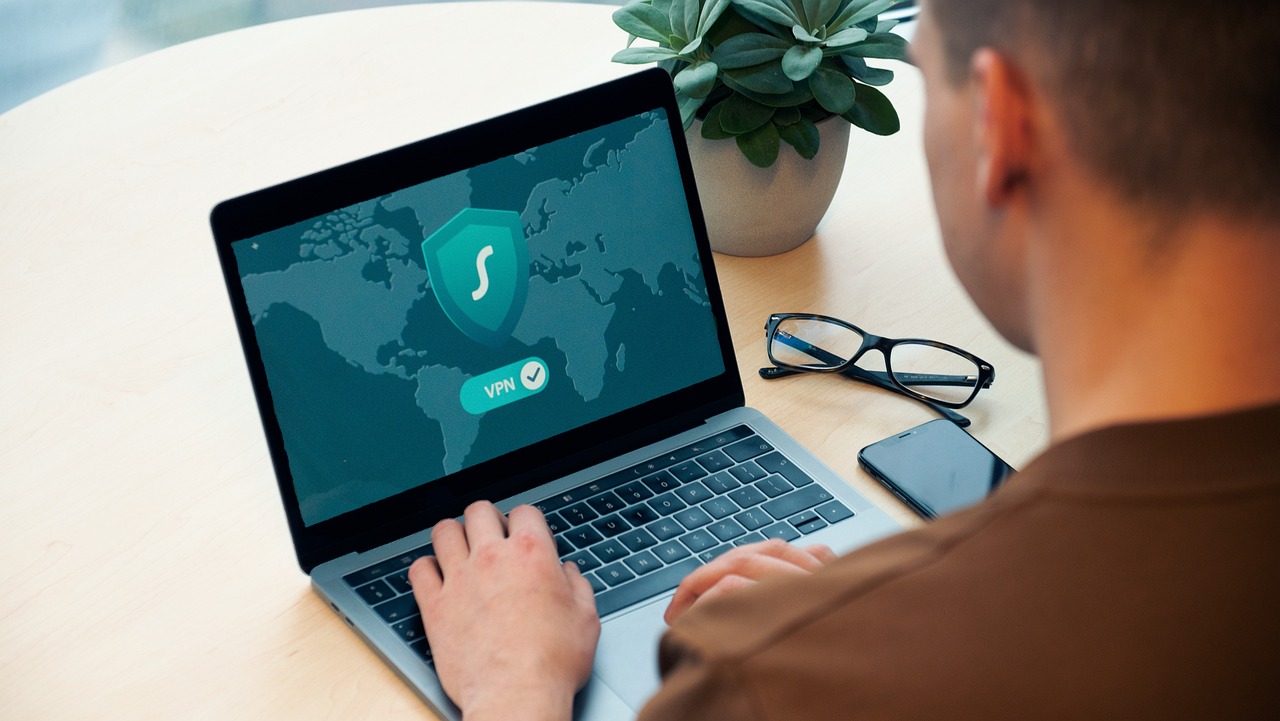When it comes to protecting your online privacy and accessing restricted content, both VPNs and Proxies are popular options. However, they work in different ways and offer distinct features. In this article, we will compare VPNs and Proxies to help you determine which one is the best fit for your needs.
What is a VPN?
A VPN, or Virtual Private Network, creates a secure and encrypted connection between your device and the internet. It routes your internet traffic through an encrypted tunnel, making it difficult for anyone to intercept or monitor your online activities. VPNs also hide your IP address, providing you with anonymity and privacy.
What is a Proxy?
A Proxy server acts as an intermediary between your device and the internet. When you use a Proxy, your internet traffic is routed through the server before reaching its destination. Proxies can be used to bypass certain restrictions and access region-restricted content. However, they do not encrypt your internet traffic or provide the same level of security as a VPN.
Security and Privacy
While both VPNs and Proxies offer some level of security and privacy, VPNs are generally considered to be more secure. With a VPN, all your internet traffic is encrypted, ensuring that your data remains private and protected. Proxies, on the other hand, do not provide encryption, making your data more vulnerable to interception.
Geographical Restrictions
Both VPNs and Proxies can help you bypass geographical restrictions and access region-restricted content. However, VPNs are more effective in this aspect as they allow you to connect to servers in different countries, making it appear as if you are browsing from that location. Proxies may have limited server options, which can restrict your access to certain content.
Speed and Performance
When it comes to speed and performance, Proxies are generally faster than VPNs. Since Proxies do not encrypt your internet traffic, they have less impact on your internet speed. However, VPNs have significantly improved their performance in recent years, and many providers offer fast and reliable connections.
In conclusion, the choice between a VPN and a Proxy depends on your specific needs. If security and privacy are your top concerns, a VPN is the better option. On the other hand, if you prioritize speed and performance, a Proxy might be more suitable. Consider the features and benefits of each option to determine which one is right for you.
What is a VPN?
A VPN, short for Virtual Private Network, is a technology that allows you to create a secure and private connection to the internet. It works by encrypting your internet traffic and routing it through a remote server operated by the VPN provider. This process masks your IP address and makes it appear as if you are accessing the internet from a different location.
One of the main advantages of using a VPN is the enhanced security and privacy it provides. By encrypting your internet traffic, a VPN ensures that your data remains protected from hackers, government surveillance, and other online threats. It also prevents your internet service provider (ISP) from monitoring your online activities and selling your browsing data to advertisers.
Moreover, a VPN allows you to bypass censorship and access region-restricted content. For example, if you are traveling abroad and want to watch your favorite TV shows or access websites that are only available in your home country, a VPN can help you achieve that by connecting to a server located in your desired location.
In terms of speed and performance, a VPN may slightly reduce your internet speed due to the encryption and rerouting of your traffic. However, the impact is usually minimal, and many VPN providers offer fast and reliable connections.
In conclusion, a VPN is a powerful tool that provides security, privacy, and the ability to bypass geographical restrictions. Whether you are concerned about your online privacy, want to access region-restricted content, or simply want to enhance your online security, a VPN is an excellent choice.
What is a Proxy?
A proxy server acts as an intermediary between your device and the internet. When you connect to the internet through a proxy server, your requests are first sent to the proxy server, which then forwards them to the websites or servers you want to access. This means that your device’s IP address is not directly exposed to the websites you visit, as the proxy server acts as a middleman.
Proxies are commonly used for various purposes, such as improving security and privacy, bypassing restrictions, and enhancing performance. Let’s explore some of the key features and benefits of using a proxy:
- Security and Privacy: Proxies can help enhance your online security and privacy by masking your IP address. This makes it difficult for websites and online services to track your online activities and gather personal information.
- Access to Region-Restricted Content: By connecting to a proxy server located in a different country, you can bypass geographical restrictions and access region-restricted content. This is particularly useful for streaming services and websites that may block access based on your location.
- Improved Performance: Proxies can also improve your internet speed and performance by caching frequently accessed web pages and files. This means that when you request a web page, the proxy server can deliver it to you more quickly, as it may already have a cached copy.
- Control and Monitoring: In some cases, proxies can be used by organizations to control and monitor internet usage within their network. They can restrict access to certain websites, filter content, and track user activities.
Overall, proxies offer a range of benefits and can be a valuable tool for individuals and organizations alike. However, it’s important to choose a reliable and trustworthy proxy service to ensure the security and privacy of your online activities.
Security and Privacy
When it comes to security and privacy, both VPNs and Proxies offer different levels of protection. Let’s take a closer look at how each service handles these aspects.
VPNs: Virtual Private Networks are known for their robust security measures. By encrypting your internet connection, VPNs ensure that your online activities are hidden from prying eyes. This means that your data is protected from hackers, government surveillance, and other potential threats. Additionally, VPNs often have strict no-logs policies, meaning that they do not store any information about your online activities. This adds an extra layer of privacy to your browsing experience.
Proxies: While Proxies can offer some level of security and privacy, they are not as secure as VPNs. Proxies act as intermediaries between your device and the internet, but they do not encrypt your connection. This means that your data is not fully protected and can potentially be intercepted by malicious actors. Additionally, Proxies may keep logs of your online activities, which could compromise your privacy.
In summary, if security and privacy are your top concerns, a VPN is the better option. With its strong encryption and no-logs policies, a VPN ensures that your data remains secure and private.
Geographical Restrictions
Geographical restrictions can be a major hurdle when it comes to accessing certain online content. Whether it’s streaming services, websites, or online platforms, some content may be restricted to specific regions due to licensing agreements or other reasons. This is where VPNs and Proxies come in handy, as they can help bypass these restrictions and allow you to access region-restricted content.
With a VPN, you can connect to a server located in a different country, effectively masking your IP address and making it appear as if you are browsing from that location. This allows you to access content that may be restricted in your own country. VPNs provide a secure and encrypted connection, ensuring that your online activities remain private and protected.
On the other hand, proxies also act as intermediaries between your device and the internet, but they do not provide the same level of security and privacy as VPNs. Proxies simply reroute your internet traffic through a different server, making it appear as if you are browsing from a different location. While proxies can help bypass geographical restrictions, they do not encrypt your data, leaving it vulnerable to potential threats.
When it comes to geographical restrictions, VPNs are generally considered to be the better option. They not only allow you to access region-restricted content but also provide enhanced security and privacy features. With a VPN, you can enjoy a seamless browsing experience while ensuring that your online activities remain private and protected.
Speed and Performance
When it comes to speed and performance, both VPNs and Proxies can have an impact on your internet connection. However, the extent of this impact can vary depending on the service you choose and your specific needs.
A VPN, or Virtual Private Network, encrypts your internet traffic and routes it through a secure server, which can sometimes result in a slight decrease in speed. This encryption and rerouting process adds an extra layer of security, but it can also introduce some latency. However, with advancements in technology, many VPN providers now offer high-speed connections that minimize any noticeable difference in performance.
On the other hand, a Proxy server acts as an intermediary between your device and the internet. It can help bypass certain restrictions and provide some level of anonymity, but it may not offer the same level of security as a VPN. In terms of speed, Proxies are generally faster than VPNs since they don’t encrypt your data. However, this speed advantage can vary depending on the quality and location of the Proxy server.
Ultimately, the choice between a VPN and a Proxy depends on your specific needs. If your main concern is security and privacy, a VPN is the better option. It may slightly impact your internet speed, but the added security features outweigh this potential drawback. On the other hand, if you’re primarily looking to bypass geographical restrictions and access region-restricted content, a Proxy may be a more suitable choice. It offers faster speeds and can help you access blocked content with ease.
In conclusion, both VPNs and Proxies have their advantages and disadvantages when it comes to speed and performance. Consider your priorities and choose the service that aligns with your specific needs and internet usage.







